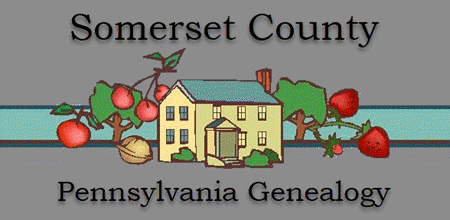The Whiskey RebellionSee also The Whiskey Insurrection by Blackburn
& Welfley The Whiskey Rebellion, as it was called, is part of Somerset County's rich and interesting past. Many people do not realize how important whiskey was to the local economy in post-Revolutionary days. Somerset County's fertile fields were planted with Rye grain which produced abundant harvests. However, once harvested, the grain needed to be taken to the market for selling. The roads through the mountains to the market places in Bedford county was a difficult journey for the Somerset County farmer. Only four bushels of rye could be loaded on horseback and safely transported to the market place. Somerset County farmers realized early on that by converting their rye grain into whiskey they could distill 6 times the amount of dry product. The Whiskey rebellion began when the government placed an excise tax on all whiskey. Western Pennsylvanian's felt unfairly discriminated against and demonstrated against the tax and the government. They carried out riots, demonstrations, and even tarred and feathered excise collectors. Harmon Husband was elected as representative of Somerset and was sent to meet with other delegates to discuss plans to counter the governments stringent tax on whiskey. Husband, a devout Quaker, favored non-violence. He was able to sway the other delegates that peace was the only means for change. The government was a first concilliatory, however, later President Washington was concerned about the region West of the Alleghenies suceeding from the union. He sent 13,000 militia men to Pittsburgh to crush the rebellion. The federal troops arrived in Berlin and captured General Robert Philson. Soon, they captured Harmon Husband and 16 others. They took the prisoners to Bedford County where they were tried brought before Federal Judge Peters. Husband and Philson were taken to Philadelphia where they were to be tried for treason. It is believed that Husband never had a chance to defend himself. He was falsely imprisonated, partly for his part in the Rebellion, and partly for his previous guilty conviction years before during the Hillsborough Riots in North Carolina. On May the 12, 1795, Husband and seven others were released from prison. His health failing, he returned to Somerset County, where he died on June the 19, 1795. (excerpted from Somerset Past, Vol V, No. 2, pp. 16-17) Events Commemorating the Whiskey Rebellion
|


![[PA] GenWeb](images/pamainlogo225_.jpg)